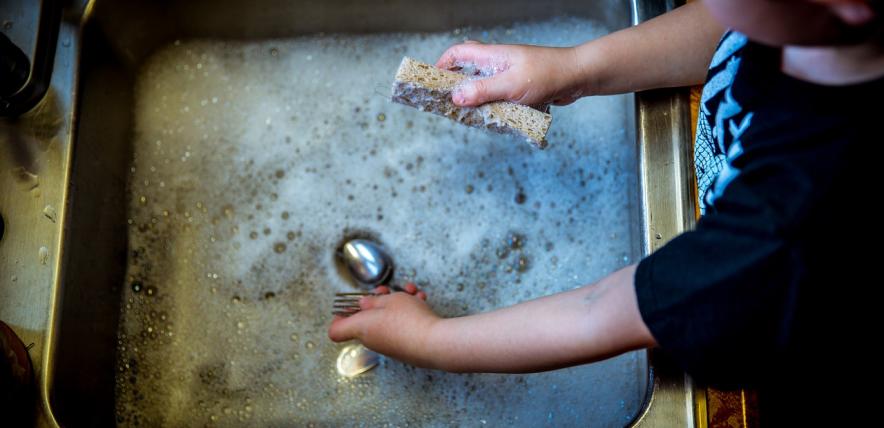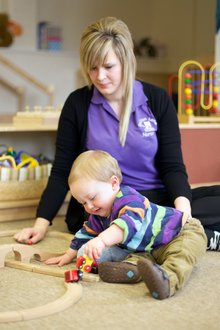In an ideal world, we would all have helpful, thoughtful children who spontaneously volunteer to set the table, put away their own clothes and tidy away their toys.
But the reality is that children are unlikely to realise that these tasks need doing. Unless, of course, we teach them.
The difference between households where the children help out and ones where they are more concerned with playing Minecraft is not that one set of children is just naturally more considerate than the other: it’s the expectations of their parents and the routines they’ve set in place.
'It's easier to do it myself'
So why don’t we encourage our children to do more around the house? Obviously when they’re really little, there aren’t that many things that they can do. But more often, when we live such busy lives, it’s frankly much easier to do things ourselves than supervise our children doing them slowly and, let’s face it, probably not quite as we would like it done!
The fact is, though, that a bit of time and patience now will pay big dividends later in life. Trying to convince a reluctant 13-year-old to help around the house when they’ve never done it before is not a challenge we’d wish on anyone.
So starting young and introducing the idea that help around the house is expected is actually easier than leaving it until your children are older.
Focus on the positives
Moaning at your children about how busy you are, how unfair it is that you have to do all the work is something that we all find ourselves doing from time to time. But sadly we also know that children tend to switch off as soon as they hear that cross tone of voice.
It’s better to frame doing household chores as a positive thing, a way to contribute to family life and to be part of the ‘team’.
Use phrases like ‘We all work together in our family,’ and ‘We all clean up our own mess in this house’.
After all, if you talk about ‘helping mummy and daddy’ it just reinforces the idea that the jobs are part of your job description, and they’re just helping you out. You want to get across the idea that every member of the family has a responsibility to contribute to home and family life.
Make it age appropriate
A key to success is finding jobs that your child can do, whatever their age. We don't just mean physically, either — although you don't necessarily want a three year old lifting china plates into the dishwasher or pushing around a heavy hoover. The job also needs to take an amount of time that you can realistically expect your child to be able to concentrate for. Good ideas for young children include putting the cutlery on the table (this helps with their maths skills too!), getting out condiments at meal times, light dusting and sweeping, tidying away toys and keeping their room tidy, but this will vary from household to household.
Have a written rota
If you have everyone's jobs written down on a chart this can be a way of avoiding endless bickering about who's turn it is to do what. For pre-school children you can use colours or pictures rather than written labels to help them identify their task. It’s also a good idea to try to keep to a consistent routine and avoid making changes to the rota too often, so it becomes a habit and not a novelty.
Remind without nagging
As we’ve mentioned above, it can sometimes feel as if children take so long to do their tasks that it’s easier and quicker to do it yourself. That’s why giving them plenty of time to complete jobs, and reminding them in an upbeat and positive way that it’s time to get started, will mean that the job is more likely to get done by someone other than you!
Praise their efforts
We all like to feel that we’ve done a good job, but sadly mums and dads rarely get positive feedback for their sock folding skills! Praising your children, however, will remind them that you value their contribution to family life and make them more likely to want to help out next time. And if they haven’t done such a good job? Try and frame your feedback in as positive a way as possible: ‘I really like how hard you’ve tried, and how helpful you’ve been. Next time, why don’t we see if you can remember which way round the knives and forks go!’
Don't jump in too quickly
Don’t be afraid to offer help, and to suggest doing things together if it means your child is more willing to help out. But resist leaping in to help your child if they are struggling a little bit, or taking longer than expected to get things done. A bit of struggle is part of the learning experience, and overcoming difficulty will help your child feel more capable and confident.
Written by Siobhan Godwood for the Early Years Alliance.
Where next?
6 ways to help your child develop a 'growth mindset'.







